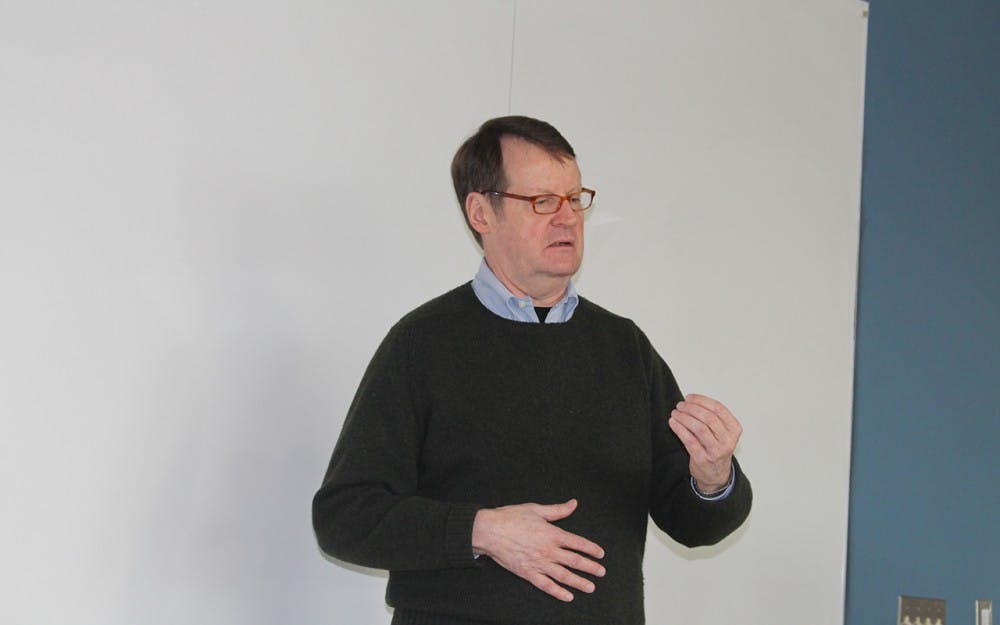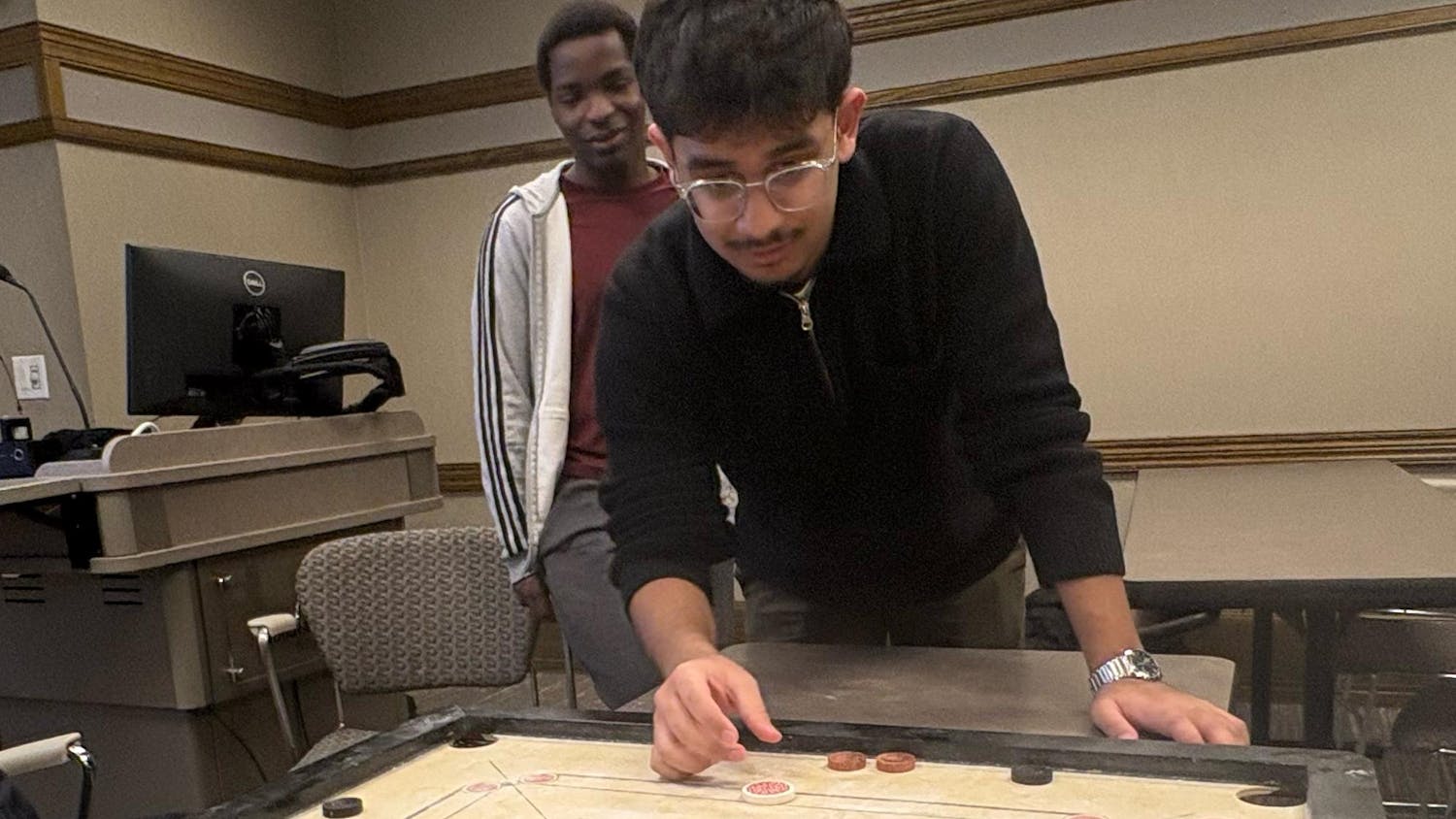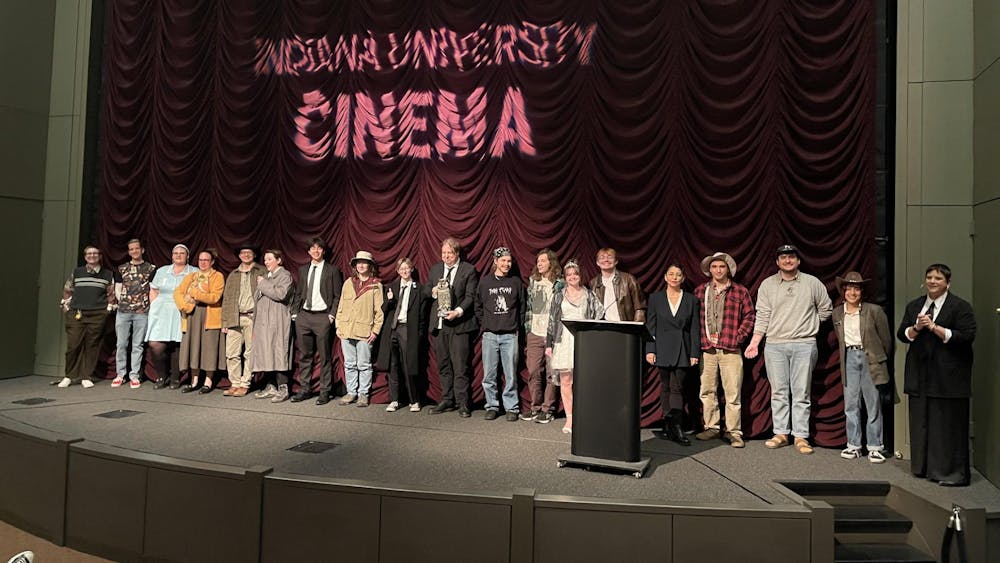Mark Minton, an IU professor and former U.S. ambassador to Mongolia and deputy ambassador to South Korea, spoke about North Korea, human rights and war on Feb 16.
About 30 students gathered at the Global and International Studies Building to hear Minton and welcome one of IU’s newer clubs, Liberty in North Korea.
LiNK was founded last semester by sophomore William Patterson. It is the IU chapter of the primary LiNK organization, which aims to be a rescue or support system for North Koreans. This was its first event at IU, and Patterson and Minton said they were surprised and happy to see how many students care about the topic.
“Just by being here today you guys really are helping,” Patterson said.
Attendants were helping in the sense that they were drawing more attention to human rights atrocities in North Korea, he said. Their presence would help citizens get out of what he said was a truly terrible country to live in.
Minton said groups like LiNK were important because efforts toward helping or stopping North Korea is important work. He said people have to keep publicizing and talking about the human rights crisis in North Korea.
“Create a certain amount of political pressure by raising the issue,” Minton said.
He said that understanding the current humanitarian situation requires understand North Korea’s history, specifically with Kim Il-sung and Japan in the early twentieth century.
The Japanese annexed the Korean peninsula, and Kim was part of a Korean guerrilla group with some Soviet backing, but no Korean efforts to expel the Japanese were effective until World War II when Japan was defeated.
After WWII the Americans, Soviets and Japanese mostly left Korea alone, said.
Kim saw an opportunity to consolidate Korea under his rule, and he received backing from the Soviets in the north. The Americans and their allies responded to Kim expansion plans, and the Korean War began.
Minton said when the war ended and the two Koreas were created, Kim had lost a war but he had gained legitimacy.
“The industrial powerhouse was North Korea, and they had Soviet advisers on top of it,” Minton said. “The economy was expanding and growing.”
North Korea’s initial prosperity allowed it to compete with its rival, South Korea, and establish itself as a dominant presence in the region. However, over time, Kim’s regime failed to develop the infrastructure left by the Japanese, and conditions in North Korea began to deteriorate, Minton said.
He said Kim had already began creating prison camps, and the failing conditions of the state did not help.
“These are not prison camps for criminals but politically incorrect people,” he said.
Right now the country has four consolidated camps and, at its peak, had more than a dozen. Minton said Kim’s political structure would crumble by the 1990s for several reasons. The first, Minton said was because the Soviet Union collapsed.
The Soviet Union was economically supporting the Koreans through food, money, loans and oil. China began to shift its economic and social structure, thus creating an ever isolated North Korea.
Kim Il-sung died in the 1994 while facing a deteriorating local and international structure, Minton said.
“Because of bad agricultural policy, there was a devastating famine, and millions of people died,” he said.
The regime did not know how to survive and had to find new strategies, he said. They would begin to cause trouble on the international stage and maybe get bought off.
This was North Korea’s initial strategy, he said. It was a way they could manage the outside world and get benefits for a collapsing economy.
This strategy has stopped working for the regime because Milton said most people who have negotiated with North Korea have been disappointed by the results and that does not leave much of an appetite to continue.
However, he did think it was important to keep trying to find strategies for working with and against North Korea, he said.
“I think we have to take the problem apart and see what we can do about it,” he said.
He said the international community cannot rely on war because the casualties would be uncontrolled and vast. North Korea’s nuclear program could prove devastating for all parties involved in an armed conflict, he said.
He said private organizations have to invest more of their resources into Korea and, therefore, force integration into a world structure. He said he thinks private actors are one of the better options.






